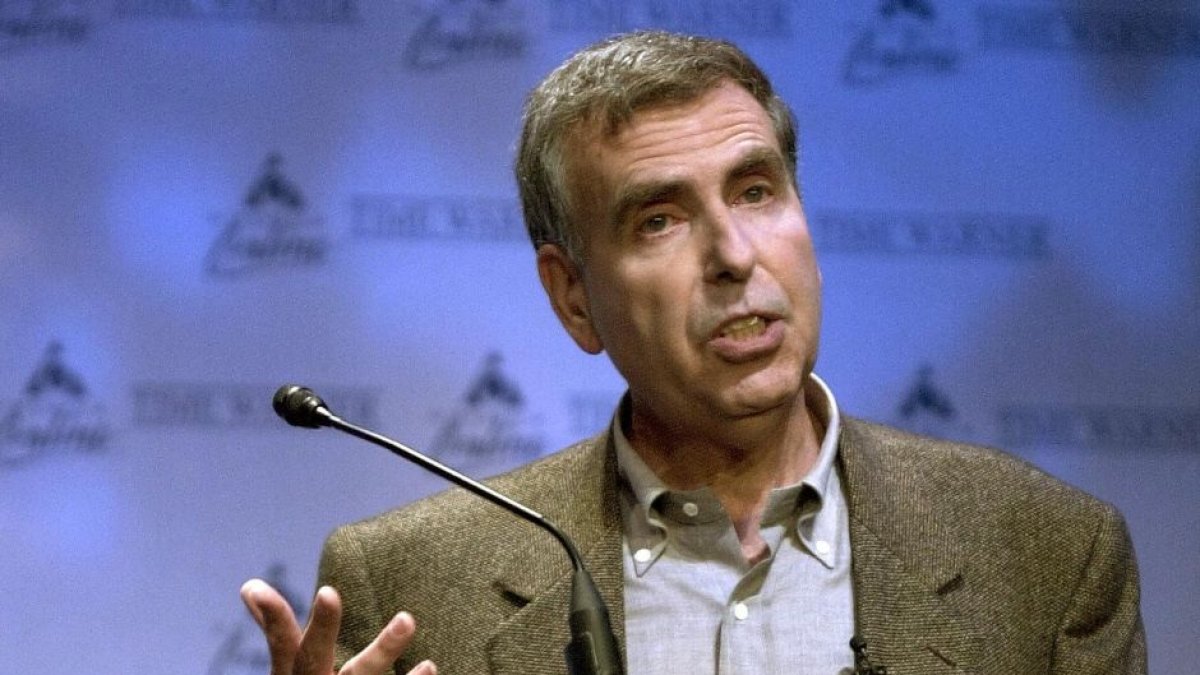Gerald Levin, the executive behind the merger between Warner and AOL, dies at 84
The executive played a pivotal role in pioneering the transmission of HBO's regional television channel via satellite.

Gerald Levin (Stan Honda / AFP)
Gerald Levin, the executive behind the merger between Time Warner and America Online (AOL), died this Wednesday at the age of 84. His grandson, Jake Maia Arlow, announced the news.
He did so in a statement he sent to the New York Times, which quickly reported the executive's death. It reported that Levin had died in a hospital in Long Beach, California, where he had lived for years. However, it did not reveal the cause of death as the family has not yet officially released that information. However, it is known that the former executive had been diagnosed with Parkinson's, a disease that could have caused his death.
The disastrous merger between Time Warner and AOL
Levin will be remembered for being one of the architects of the merger between Time Warner and AOL, one of the most disastrous unions in history. The idea, however, was not solely his. AOL director Steve Case was also involved. In 2000, they decided to merge the largest media company in the world (Time Warner) and the largest internet company (AOL).
Their combined market value, the New York newspaper recalls, was approximately $342 billion (equivalent to about $600 billion today). The merger, through which AOL Time Warner was born, was announced as one of the riskiest in history since it combined new and old media by uniting television with the internet.
His successor at AOL Time Warner, Richard Parsons, claimed the decision was the right one. Speaking to the New York Times, the CEO said that the former executive was "one of the smartest guys in the media and entertainment space" and a "visionary" who understood, before anyone else, that the internet would be vital to the survival of other media:
However, time proved otherwise. Variety reported that months after the historic union, the dot-com recession greatly affected the company, leading to a $100 billion writedown and Levin's resignation in 2002.
Gerald Levin also pioneered HBO's satellite transmission
The historic merger isn't the only thing Levin will be remembered for. He also proposed that Home Box Office (HBO) begin broadcasting via satellite. It all began in 1972, when Levin, who at the time was working as a lawyer, was hired as a programming executive at the network. A year later, Home Box Office decided to promote him to CEO and he began thinking about how to improve the company.
The proposal came in 1975. Gerald Levin managed to convince the channel's parent company, Time Inc., to transmit the HBO signal via satellite. This made it available throughout the country. In the book Tinderbox: HBO's Ruthless Pursuit of New Frontiers written by James Andrew Miller and published in 2021, he said:
Following this success, Levin became a member of Time's board of directors in 1988 and was one of the main drivers of the company's merger with Warner Communications. This union was not successful. Levin accepted a new position as CEO of Time Warner. As CEO, he managed important business deals such as the purchase of Turner Broadcasting System and the incorporation of important channels such as CNN, TBS and Cartoon Network into Time Warner.

























